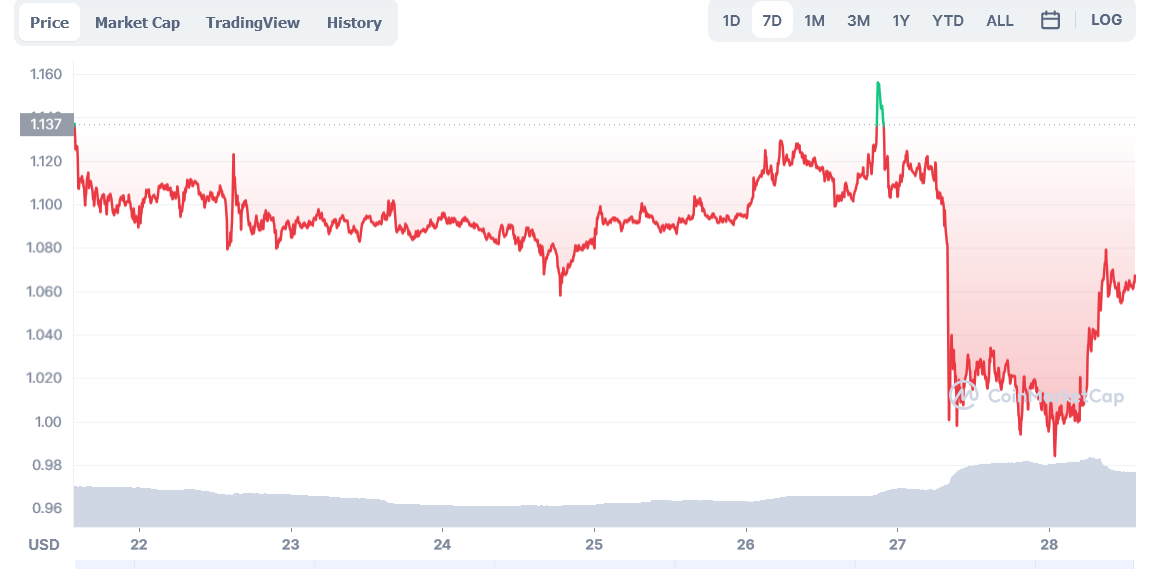Investing in real estate through a real estate investment trust (REIT) has been a trusted option for many wanting to get involved in the property market without directly owning a property. With advantages like earning potential dividends, reduced risks from diversifying assets, followed by how easy they can be bought or sold, REITs have been essential for many investors. Despite these benefits, they have certain downsides—like hefty management fees, accessibility barriers for those with limited funds, and vague operations.
Imagine if there was a type of REIT that utilizes blockchain technology to tackle these issues head-on. This idea is behind the real estate investment platform RentFi. This groundbreaking approach could change how people see and use asset management and real estate investments. Thanks to the unique advantages of blockchain, including transparency, enhanced security, and efficiency, these new kinds of REITs are setting the stage for improved opportunities for investors and property managers alike.
Grasping the Basics of Traditional REITs
To truly appreciate how blockchain can disrupt the real estate investment scene, it’s important to first look at the conventional REIT model. REITs typically own, run, or fund income-generating properties, cutting across diverse sectors, such as:
- Commercial Properties: Think of office buildings, shopping malls, and warehouses.
- Residential Properties: This includes apartment complexes and single-family houses.
- Healthcare Facilities: Such as hospitals and nursing homes.
- Infrastructure Assets: This can be cell towers, pipelines, and data storage centers.
- Specialty Types: Covering areas like timber land, farmland, and storage units.
The income for REITs primarily comes from rent and appreciation of the properties. They have a requirement to distribute a large part of their taxable income as dividends to their shareholders. This characteristic makes them a fit for investors looking for income. The traditional structure provides benefits such as broader market diversification and professional oversight, but it isn’t without flaws:
- High Fees: Often, management fees can lower returns for investors.
- Barriers for Entry: Investing in traditional REITs generally demands a larger upfront investment, limiting who can participate.
- Transparency Issues: How traditional REITs operate and how decisions are made can sometimes be opaque.
- Limited Liquidity: While publicly traded shares can be sold, larger sales might disturb market prices.
Blockchain Technology: A Key to Innovation
Blockchain, with its decentralized and transparent features, poses an alluring fix for the issues surrounding traditional REITs. This technology reshapes the notion of REITs in several transformative ways:
- Fractional Ownership Opportunities: Through blockchain, real estate assets can be transformed into smaller, affordable units through tokenization. This opens the door for smaller investors to join high-value real estate game that were beyond reach earlier.
- Enhanced Liquidity: Exchange trading for tokenized assets on blockchain platforms increases the ease of buying and selling, much more so than conventional REIT shares.
- Greater Transparency: Each transaction made concerning a blockchain REIT is visible on a public ledger that boosts brand trust and accountability.
- Lowered Costs: Automating various related tasks while getting rid of intermediaries can cut costs considerably in managing a REIT.
- Smart Contracts: Written within the blockchain, smart contracts automate elements like dividends and rent collection, leading to even more efficiencies.
Advantages of Blockchain-Based REITs
The blend of blockchain technology and REITs results in exciting benefits for both investors and property owners:
- Wider Access to Real Estate Markets: Blockchain REITs bring new investment opportunities to a broader audience, including those who might have limited financial resources.

- Improved Trust and Clarity: The immutable aspect of blockchain ensures that transactions are recorded and can be validated, giving a system built on trust.
- Increased Efficiency and Lower Costs: Thanks to smart contracts and less need for middlemen, efficiency goes up while operational costs go down.
- Superior Liquidity: The easy trade of tokenized assets on blockchain platforms means investors gain greater flexibility.
- Access to International Markets: Blockchain REITs facilitate real estate investments in multiple countries, allowing investors opportunities overseas.
Platforms Connecting Real Estate and Blockchain
Emerging platforms like RentFi are aiming to bridge the gap between classic real estate operations and the advanced features of blockchain. By simplifying how blockchain-based REITs are structured and managed, they offer tokenization services, smart contract design, and navigating compliance rules. These platforms empower property owners to better manage their assets while opening doors to new investment possibilities in the exciting realm of blockchain-driven REITs.
Challenges to Address
As promising as they may be, blockchain REITs bring their own set of challenges and issues that require serious attention:
- Unclear Regulations: Investors and companies face uncertainty due to the ambiguous rules governing blockchain technologies and tokenized securities.
- Security Vulnerabilities: The risks associated with hacking and problems within smart contracts need to be critically considered, highlighting security concerns.
- Adoption Issues: Convincing the general populace and investors about the advantages of blockchain-based REITs is essential for the broader acceptance of this model.
- Valuation Limitations: Accurately determining the current worth of tokenized real estate may prove tricky, especially as the market develops.
The Future of REITs: A Shift Towards Blockchain
Even with these challenges, the landscape of REITs that incorporate blockchain technology is bright. As the laws regarding it become more precise and technology continues to further develop, we may soon see blockchain REITs become commonplace in good investment discussions. The draws of easier ownership options, better liquidity, more clarity, and lowered costs make it necessary not to overlook them.
Looking ahead, we should anticipate more engagement with blockchain REITs. Expect:
- Enhanced Integration of Blockchain in REITs: More property owners will use tokenization while investment functions will turn in favor of this innovative model.
- Introduction of Specialized REIT Platforms: Companies like RentFi will keep evolving to offer solutions toward developing and overseeing blockchain-related investments.
- DeFi Integration: The linear bond between blockchain REITs and decentralized financial initiatives will grow, offering new potential for clients wanting diverse investment options.
- Broader Institutional Involvement: With market credibility on the rise, we might see institutions beginning to allocate more of their portfolio into blockchain REIT assets.
Conclusion
The rise of the REIT of the Blockchain signals a significant shift in how we think about property investment and asset management.

By using blockchain’s potential, these new frameworks work to make real estate easier to access, more straightforward, lower in operational costs, and increase the fluid movement of funds. While challenges do exist, the benefits are compelling. As platforms continue to innovate and legal boundaries expand, the world may well soon see a revolutionary way to engage in real estate delivery led by blockchain. As we move toward this promising future, we’ve only just scratched the surface of the opportunities ahead.
Market Maestro: With an uncanny ability to predict the ups and downs of the crypto market, Jordan is our go-to for all things investment. Just don’t ask him for lottery numbers; he says it’s a different kind of prediction magic.



